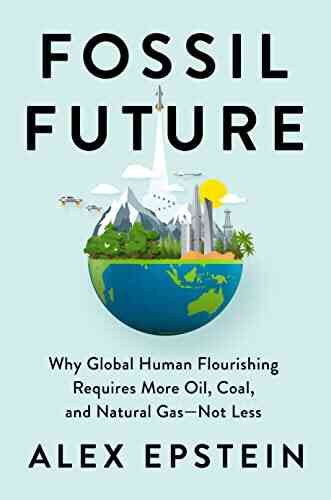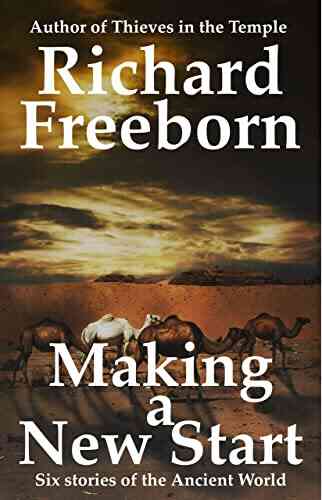Why Global Human Flourishing Requires More Oil, Coal, and Natural Gas, Not Less

It's no secret that the world is facing significant challenges when it comes to meeting the energy demands of a growing population. As the global population continues to rise and economies expand, the need for reliable and affordable sources of energy becomes even more critical. While there has been a push in recent years to transition to cleaner and more sustainable energy alternatives, it is essential to understand that a complete shift away from oil, coal, and natural gas is neither practical nor beneficial for global human flourishing.
When it comes to energy sources, oil, coal, and natural gas have played a crucial role in driving economic growth and improving the standard of living for billions of people worldwide. These fossil fuels have powered industries, transportation systems, and households, enabling advancements in technology, medicine, and infrastructure that have significantly improved the quality of life for many.
One of the primary arguments against fossil fuels is their impact on the environment, particularly in terms of greenhouse gas emissions and climate change. While it is true that burning fossil fuels releases carbon dioxide, a greenhouse gas responsible for trapping heat in the Earth's atmosphere, it is essential to consider the full picture. The use of oil, coal, and natural gas has also lifted billions of people out of poverty and provided access to education, healthcare, and clean water.
4.7 out of 5
| Language | : | English |
| File size | : | 14332 KB |
| Text-to-Speech | : | Enabled |
| Screen Reader | : | Supported |
| Enhanced typesetting | : | Enabled |
| X-Ray | : | Enabled |
| Word Wise | : | Enabled |
| Print length | : | 480 pages |
Renewable energy sources, such as solar and wind power, have gained traction in recent years as potential alternatives to fossil fuels. While these sources have their merits, they are not without limitations. The development and implementation of renewable energy technologies require significant investments in infrastructure and manufacturing processes, which can be prohibitively expensive for many developing countries. Additionally, renewable energy sources are intermittent, meaning they are dependent on factors such as weather conditions and time of day, making them less reliable for meeting constant energy demands.
Furthermore, switching entirely to renewable energy sources would require massive land use changes, leading to the destruction of natural habitats and potential displacement of communities. The transition also presents challenges in terms of the scalability and storage capacity of renewable energy technologies. Without adequate storage capabilities, excess energy generated during peak periods would go to waste, limiting the efficiency and reliability of these sources.
Oil, coal, and natural gas have proven to be abundant and cost-effective energy sources, with established infrastructure and technology for extraction, distribution, and storage. While they are not without environmental concerns, advancements in technology have allowed for the development of cleaner and more efficient ways to exploit these resources. Investing in research and development of cleaner technologies, such as carbon capture and storage, can help mitigate the environmental impact of fossil fuel use.
It is crucial to recognize that efforts to reduce greenhouse gas emissions and shift towards more sustainable energy sources should not come at the expense of global human flourishing. Access to reliable and affordable energy is essential for economic growth, poverty reduction, and overall societal well-being. Developing countries, in particular, rely heavily on fossil fuels as a means to drive their economies and provide basic services to their populations.
By focusing solely on reducing the use of oil, coal, and natural gas without considering the broader social and economic implications, we risk exacerbating inequalities and hindering the progress of those who are most in need. It is essential to strike a balance between environmental sustainability and human well-being, finding innovative solutions that address both concerns.
Ultimately, the goal should be to transition towards a more diverse energy mix that includes renewable sources while recognizing and optimizing the benefits of oil, coal, and natural gas. This approach allows for a more gradual and manageable transition that ensures the stability of energy supply, supports economic development, and promotes global human flourishing.
, the notion that global human flourishing requires more oil, coal, and natural gas, not less, is rooted in the understanding that these energy sources have played a significant role in improving the lives of billions of people. While the environmental concerns surrounding fossil fuels are valid, it is essential to consider the broader societal implications and recognize the ongoing need for reliable and affordable sources of energy. By embracing a balanced approach that combines renewable energy technologies with clean fossil fuel alternatives, we can work towards a sustainable future that benefits both the planet and its inhabitants.
4.7 out of 5
| Language | : | English |
| File size | : | 14332 KB |
| Text-to-Speech | : | Enabled |
| Screen Reader | : | Supported |
| Enhanced typesetting | : | Enabled |
| X-Ray | : | Enabled |
| Word Wise | : | Enabled |
| Print length | : | 480 pages |
The New York Times bestselling author of The Moral Case for Fossil Fuels draws on the latest data and new insights to challenge everything you thought you knew about the future of energy
For over a decade, philosopher and energy expert Alex Epstein has predicted that any negative impacts of fossil fuel use on our climate will be outweighed by the unique benefits of fossil fuels to human flourishing--including their unrivaled ability to provide low-cost, reliable energy to billions of people around the world, especially the world’s poorest people.
And contrary to what we hear from media “experts” about today’s “renewable revolution” and “climate emergency,” reality has proven Epstein right:
• Fact: Fossil fuels are still the dominant source of energy around the world, and growing fast—while much-hyped renewables are causing skyrocketing electricity prices and increased blackouts.
• Fact: Fossil-fueled development has brought global poverty to an all-time low.
• Fact: While fossil fuels have contributed to the 1 degree of warming in the last 170 years, climate-related deaths are at all-time lows thanks to fossil-fueled development.
What does the future hold? In Fossil Future, Epstein, applying his distinctive “human flourishing framework” to the latest evidence, comes to the shocking that the benefits of fossil fuels will continue to far outweigh their side effects—including climate impacts—for generations to come. The path to global human flourishing, Epstein argues, is a combination of using more fossil fuels, getting better at “climate mastery,” and establishing “energy freedom” policies that allow nuclear and other truly promising alternatives to reach their full long-term potential.
Today’s pervasive claims of imminent climate catastrophe and imminent renewable energy dominance, Epstein shows, are based on what he calls the “anti-impact framework”—a set of faulty methods, false assumptions, and anti-human values that have caused the media’s designated experts to make wildly wrong predictions about fossil fuels, climate, and renewables for the last fifty years. Deeply researched and wide-ranging, this book will cause you to rethink everything you thought you knew about the future of our energy use, our environment, and our climate.
Do you want to contribute by writing guest posts on this blog?
Please contact us and send us a resume of previous articles that you have written.




















Light bulbAdvertise smarter! Our strategic ad space ensures maximum exposure. Reserve your spot today!

 Johnny TurnerThe Big Bad Mary McCarthy Prize In Short Fiction: Unleashing the Power of...
Johnny TurnerThe Big Bad Mary McCarthy Prize In Short Fiction: Unleashing the Power of...
 Gilbert CoxDeep Dive into Reflections On Language And Meaning: Unraveling the Depths of...
Gilbert CoxDeep Dive into Reflections On Language And Meaning: Unraveling the Depths of...
 Robert FrostThe Girl of the Sea of Cortez: Unveiling an Enchanting Tale of Adventure and...
Robert FrostThe Girl of the Sea of Cortez: Unveiling an Enchanting Tale of Adventure and... Michael CrichtonFollow ·7.2k
Michael CrichtonFollow ·7.2k Devon MitchellFollow ·10.3k
Devon MitchellFollow ·10.3k Jorge Luis BorgesFollow ·13.5k
Jorge Luis BorgesFollow ·13.5k Miguel de CervantesFollow ·16.6k
Miguel de CervantesFollow ·16.6k Ken SimmonsFollow ·17.8k
Ken SimmonsFollow ·17.8k Esteban CoxFollow ·5.4k
Esteban CoxFollow ·5.4k Caleb CarterFollow ·5.9k
Caleb CarterFollow ·5.9k Robert HeinleinFollow ·16.4k
Robert HeinleinFollow ·16.4k

 Wesley Reed
Wesley ReedThe Ultimate Allergy Free Hypnotherapy Script: Say...
Are you tired of dealing with...

 Walter Simmons
Walter SimmonsAn Alliance Reforged Sentenced To War
War has always been a backdrop for...

 Jarrett Blair
Jarrett BlairThe Untold Story of Loss Guy Blaze: A Rollercoaster...
They say that loss is an inevitable part of...

 Matthew Ward
Matthew WardThe Ultimate Guide to Vegetable Gardening For Beginners:...
Are you interested in...

 Paulo Coelho
Paulo CoelhoUnrestricted Access: New And Classic Short Fiction
Are you passionate about literature?...

 Jamie Bell
Jamie BellSelf Hypnosis Made Easy - The Ultimate Guide to Unlocking...
: Do you find yourself...

 Caleb Carter
Caleb CarterThe Misery of Lives: Exploring the Intense Emotions in...
Anton Chekhov, famed Russian playwright and...

 Brandon Cox
Brandon CoxThe Untold Story of The Oliver Quintrell: A Journey...
The year was 1892. The maritime world was in...

 Juan Rulfo
Juan RulfoSpidey And His Amazing Friends Free Comic Free Comic Day...
Calling all Spidey fans! Get ready to...

 Cooper Bell
Cooper BellThe Seven Principles For Making Marriage Work: Key...
Marriage is a beautiful union...

 Eric Hayes
Eric HayesHomer And Classical Philology Glenn Mcgoldrick:...
When we think of ancient...
4.7 out of 5
| Language | : | English |
| File size | : | 14332 KB |
| Text-to-Speech | : | Enabled |
| Screen Reader | : | Supported |
| Enhanced typesetting | : | Enabled |
| X-Ray | : | Enabled |
| Word Wise | : | Enabled |
| Print length | : | 480 pages |


















